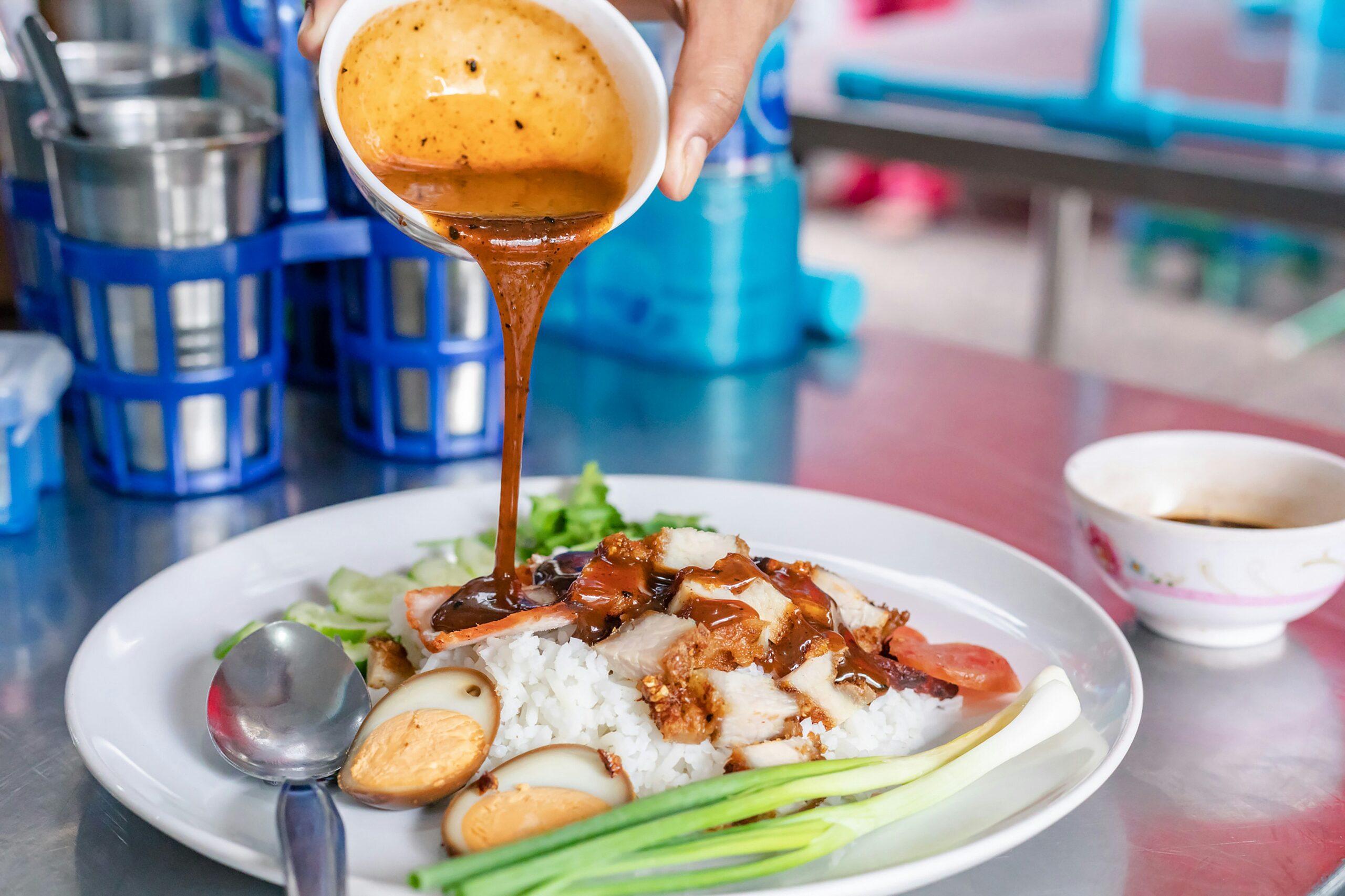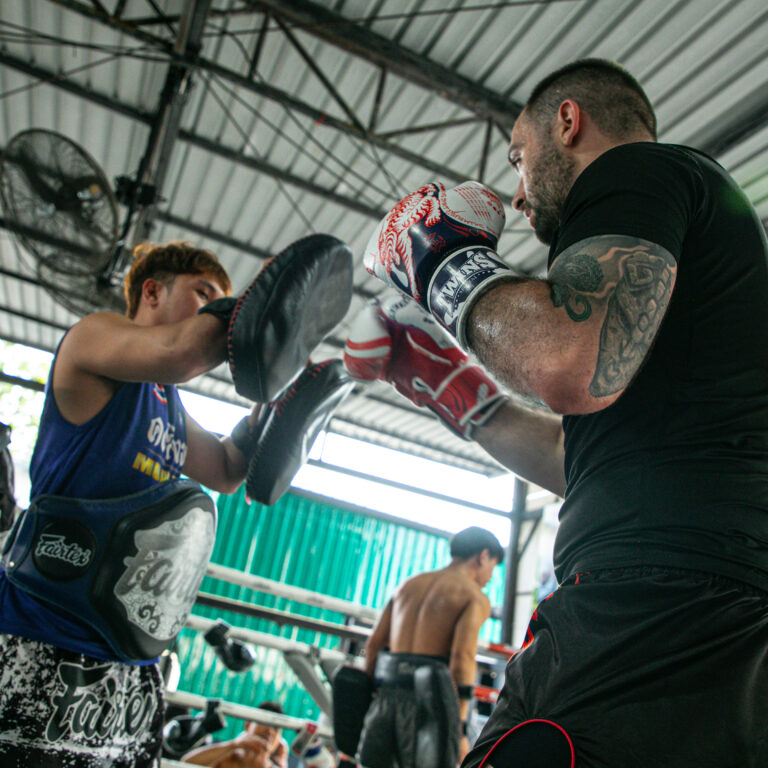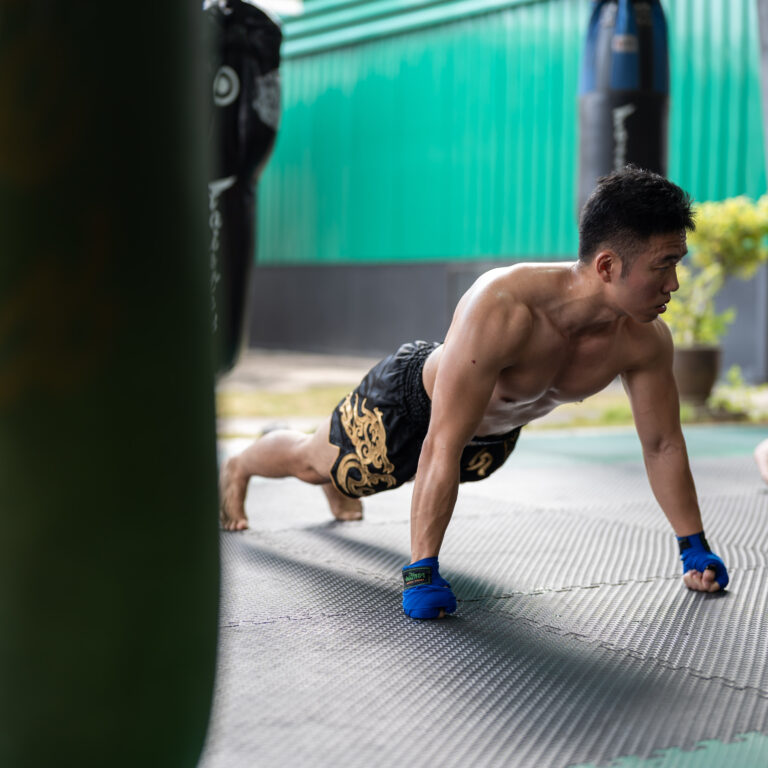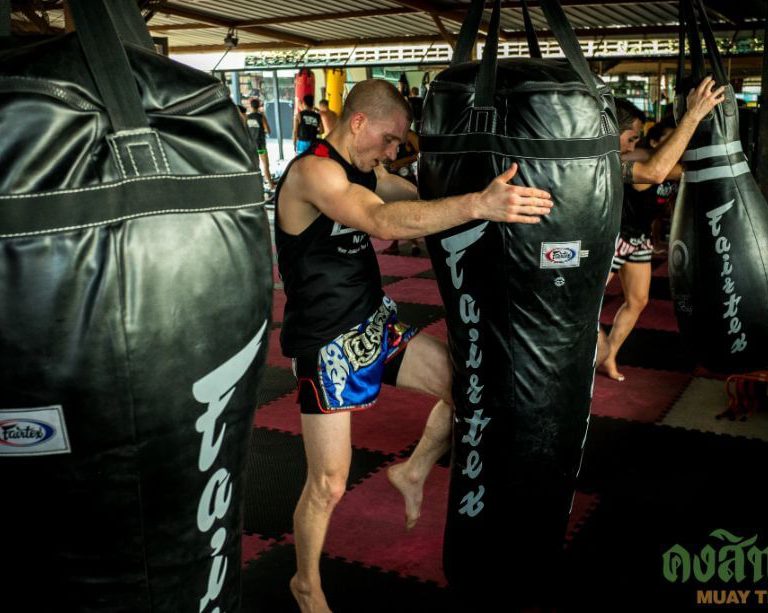Most recreational and competitive athletes are aware that in order to get the most out of your body when training and competing in a sport, you need to eating healthy on a consistent basis.
Maintaining proper nutrition, staying hydrated, and avoiding certain foods that affect your health are critical to a successful Muay Thai experience in Thailand. If you’re going to compete at the highest level, you need to be well aware of the nutrition of typical Thai dishes, what the fighters are typically eating daily, and where you can get healthier dish alternatives.
As a professional or aspiring professional fighter, you must also be aware of your weight class in Muay Thai and make sure that you’re hitting the proper weight before each of your fights.

Nutrition and Learning Muay Thai in Thailand
Before diving into the Muay Thai Diet, it’s essential to understand basic nutritional principles relevant to Muay Thai training and competition in any contact sport. You want to maintain the recommended daily intake for all essential vitamins.
Vitamins A, B, C, and D will all contribute to your health and your training capabilities.
Thailand Note: When training in Thailand, it may be challenging to meet your daily nutritional needs if you haven’t brought your own supplements. However, when Muay Thai training in Bangkok, you have access to dozens of different shops around the city that will take care of your supplement needs.
The food and meat in Thailand may be delicious, but there are typically many unhealthy meat options available, especially in areas with Muay Thai gyms.
Thankfully, there are plenty of chicken and fish options available nationwide.
Pork and beef are great options, but they have higher fat content, and if you have difficulty losing weight, consider avoiding them.
Thailand Note: Fighters, on average, lose weight and keep it off when they begin Muay Thai. It’s not common for fighters to do vigorous or heavy strength-training and muscle-building routines while training Muay Thai in Thailand. Don Heatrick, a professional Muay Thai influencer, has an excellent article on muscle growth tips and tricks while training Muay Thai.
Many Thai fighters will swear by their own nutritional regime and dietary choices, so it’s safe to say that every fighter is slightly different; Type A can be more tolerant to eating fatty foods during training, while Type B could have a slower metabolism and not be as tolerable to them.
Crucial Knowledge for Eating Healthy While Training in Thailand
There’s a reason many fighters make the pilgrimage to train in Thailand, and that’s to learn where the sport was born, to embrace Thai culture, and most importantly, to train and live as the other Nak Muays do. Food is no exception here, and you’ll find a variety of healthy (and unhealthy) eating choices for fighters.
A Thai fighter’s diet usually includes the following:
- Breakfast rice, a small amount of fibrous vegetables, and a small portion of meat, usually grilled or steamed.
- Fruits throughout the day and during lunch
- Dinner rice and healthy meat choices such as chicken or fish.
- Water, all day, every day.
You won’t see many fighters deviate from these food choices for eating healthy, although it’s easy to put in some very unhealthy additions to this diet. Thailand is notorious for its high-sugar, MSG-laden food.
Monosodium Glutamate (MSG) is a natural salt compound found in our bodies. There has been extensive criticism and ill-informed research regarding the potential harmful effects of MSG on the human body. However, no reputable scientific studies have found adverse effects from MSG. However, it’s essential to try foods with MSG to decide for yourself if it’s something that you want to consume while learning Muay Thai in Thailand.
Moderation is essential for all eating habits, and consuming excessive sodium or sugar in your diet can make training difficult.
If you’re looking to lose weight while training, stay away from foods such as:
- Sugary foods and drinks (the green, red, and blue-colored drinks you see in roadside cafes should be avoided).
- Many coconut-based dishes are also high in sugar.
- Cha-Yen (Thai-style tea) contains a lot of sugar. Although very tasty, try to avoid drinking too much of this orange-colored tea.
- Pad Thai — Very unhealthy, filled with bad carbs, sugar, salt, and fat.
- Deep-fried foods — There’s a ton of deep-fried food that can be found all over Thailand.
- Fish, chicken, pork, and even rice: the oil is unhealthy and should be avoided, especially when trying to lose weight.
If you have the time or you’re planning on cooking while you train Muay Thai in Thailand, you have access to modern supermarkets and the Thai-style markets that open up in the morning and afternoon.
Muay Thai Guy offers an excellent package that will inform Muay Thai chefs on what to cook and how to achieve the results you want; it’s available here.
These are the general ideas and knowledge that you should possess before you begin your journey to Thailand to train in Muay Thai.
As a fighter, you want to be eating healthy all the time, even after training. Temporary diets will not help, and if you have healthy eating habits, stick with them!




